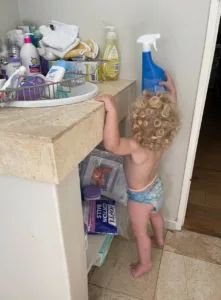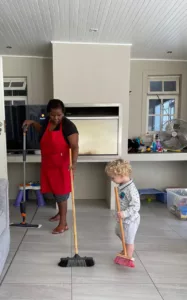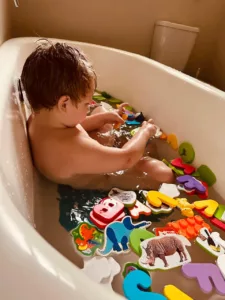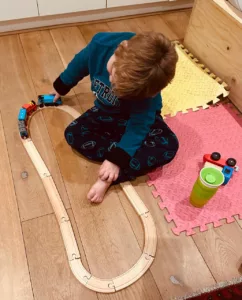When you become a special needs parent, many things don’t make sense to you until you begin to realise what your unique trajectory is. Your baby isn’t having expected responses to certain things, or isn’t feeding happily, or sleeping well. And as time passes, you begin to pick up that they’re not hitting milestones as they should be. It’s easy to go into panic-mode around all of these things and only natural to begin a deep dive into what it all means at the farthest reaches of the internet. But as a parent with some experience under my belt, let me be the first to tell you… to beware the bullshit!
Our social media algorithms show us more of what we look for. So, if you begin down a path of researching supplements that claim to cure autism, that’s mostly what you’re going to see in your feed: Advertisements, pop-ups, and reels all about how a particular extract cured a child’s autism. And even now, as a parent who still frequently researches advice, aides and therapies, I find myself watching an ad that can only be described as horribly misleading and blatantly irresponsible.
It is more than a little depressing to realise that there are unscrupulous individuals and businesses out there who would prey upon the vulnerability and fears of an autism mom, but unfortunately, there are plenty of them. I’ve seen some really outrageous claims. One ad promised that a vitamin would help curb meltdowns and other behaviours. Another sold the dream that playing a particular frequency to your child via their app would instigate instant language in a nonverbal child. Some self-styled autism professionals with YouTube Channels sell instructional courses that they also claim can cure autism. There are also hundreds of books on how to “discipline” the autism out of your child. And articles detailing bizarre studies and alternative new therapies, not approved by the FDA, which are supposed to completely eradicate autism. It’s an absolute minefield of bullshit out there, and it’s hard not to rub against a snake oil salesperson at some point or another.
Because autism research is still in its infancy, a lot of these types of people can get away with making outrageous claims because… what IF? What if their herb picked under a full moon by a barefooted virgin, helps? Wouldn’t you, as a special needs parent want to TRY it? Isn’t it your duty to CONSIDER it? It’s all so unethical to me, but I’ve always been a woman of science. I prefer to read case studies and peer reviewed articles to educate myself when making decisions for my child. Even when it comes to therapies, I prefer to be led by my son’s own preferences and what has proven, effective results within the early intervention space. We do use some supplements, but only those recommended by Aidan’s paediatrician to tackle a particular, confirmed deficiency.
I still do a lot of reading to keep myself informed of new developments within the greater autism community, but I take a lot of things with a pinch of salt. I no longer fall down autism rabbit holes left and right. I have found that, for me at least, I am more comfortable consulting with doctors and specialists only. It’s important to remember that while Autism Spectrum Disorder has always been present in world populations, possibly for millennia, our dedicated study of it is only a couple of hundred years old. With 1 in every 36 children diagnosed on the spectrum in the USA, and 1 in every 1,200 children similarly diagnosed in South Africa, governments and university institutions are finally allocating more funds to research. Eventually, the science will catch up and we will know so much more than we do now. We will hopefully have a variety of tried, tested, and proven methodologies for treating our children at our fingertips. In the meantime, I can’t possibly tell you how to approach your own autism journey, or arrange your own belief system, or find your own way to acceptance, but I can potentially still warn you about the pain associated with false hope.
As parents, there’s nothing we wouldn’t do for the sake of our vulnerable and profoundly impacted children. But getting scammed on the internet within the autism space doesn’t just impact your pocket. It also chips away at the hope you have inside for better help, resources, awareness, acceptance and inclusion for your child in a world not built for them. And when we find ourselves in tough seasons of autism, sometimes that hope is all we have. We can’t allow others to diminish it. So beware the bullshit, and don’t fall prey to scams. If it sounds too good to be true, it probably is.







